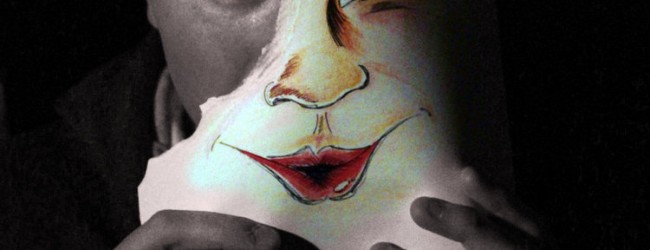breaking news
Image Management
September 5th, 2012 | by valleychristian
 0
0

When my son was about two-and-a-half he developed a particular tendency every time he would go number two in his diaper. During play or some other interaction, he would subtly wander away from the prominent place of interaction and attention – to a corner, the other side of the room behind the couch, or even upstairs. In silence he would disappear, only to reappear within five or so minutes. As he entered back into the routine of play a distinct smell would begin to ascend. We would softly ask, “Did you go poo poo?” Immediately, he would quickly respond, “Nope…” as he turned his head from left to right with a slight smile on his face. “Do you need me to change your diaper.” I would ask. “….Naawwww.”
He was old enough to know poop smelled bad and he would need a diaper change. He was also old enough to know when you got to go, let mommie or daddie know so we can go to the big potty. Yet, he wasn’t quite old enough, or at least interested enough, to go to that trouble. After all, playtime was just too much fun to be interrupted by potty-time. So at the ripe age of two-and-a-half he developed elementary skills in this age-old human practice known as image management. Wouldn’t it be nice if our image-managing tendencies ceased when we became potty-trained?
Image management is simply trying to appear better to those around us than we really are. Sometimes these means are extreme, and at other times they are simple and very subtle. We acquire tactics of image management from an early age and they typically become more sophisticated as we grow older. In fact, our culture is full of examples. To mask, veil, or alter one’s self and appearance is more common than uncommon. We watch it on television and the movies. We read about it in the magazines and newspapers. We see it on the billboards. For every alluring photo included in Sport’s Illustrated’s yearly swimsuit edition, roughly 25,000 photographs are taken and discarded. And that is after starting with statuesque models who likely have undergone intense dieting, rigorous exercise, and scores of cosmetic surgeries – not to mention the lights, makeup, and exotic settings. Ever since the Garden of Eden with Adam and Eve, deep within humans is a propensity to cover ourselves up – to wear makeup.
John Eldredge sums it up well in his book Wild at Heart, comparing the way we veil our true selves to how Adam and Eve concealed themselves behind the foliage in the Garden of Eden: “We are hiding, every last one of us. Well aware that we, too, are not what were meant to be, desperately afraid of exposure, terrified of being seen for what we are and are not, we have run off into the bushes. We hide in our office, at the gym, behind the newspaper and mostly behind our personality. Most of what you encounter when you meet a man is a façade, an elaborate fig leaf, a brilliant disguise.”
Most of us spend the bulk of our adult lives engaged in the exhausting activity of trying to get others to accept something that does not exist: the only partially-accurate image of ourselves we want them to think is real. Philosophy professor Dallas Willard asserted that, “growing up is largely a matter of learning to hide our spirit behind our face, eyes, and language so that we can evade and manage others to achieve what we want and avoid what we fear.”
The opposite, Willard observed, is childlike openness and transparency. “The child’s face is a constant epiphany because it doesn’t yet know how to do this… Those who have attained considerable spiritual stature are frequently noted for their ‘childlikeness.’ What this really means is that they do not use their face and body to hide their spiritual reality. In their body they are genuinely present to those around them.”
Some people hide behind small talk. They may even be great conversationalists. They can dialogue about sports, engage in political debates and deliberate on world hunger and global warming, but all of this talk seems to be hiding more than it is revealing. While there’s nothing wrong talking about such topics, often these various topics merely serve to guard our hearts and the realities within.
Some people hide behind humor. They may have a great gift for making you laugh. But you notice, over time, that when the conversations get tense or sad or begin to get personal, they find some way to make a joke. They hide behind a smiling face. “Each of us does his best to hide behind a shield,” writes Paul Tournier in his book The Meaning of Persons. He continues, “for one it is a mysterious silence which constitutes an impenetrable retreat. For another it is facile chit-chat… one hides behind his timidity so that we cannot find anything to say to him; another behind a brazen self-assurance which renders him invulnerable.”
Some people hide behind their intelligence, while others use ignorance. Some cover up with busyness and work or status and titles. At times, we can utilize iPads, smartphones and Facebook status updates to veil the world from our true selves. What’s your veil? If you’re not sure, the people closest to you can tell you.
John Ortberg, in his book Everybody’s Normal til You Get to Know them, points out that the tendency to hide is so strong that psychologists sometimes speak of the “imposter’s phenomenon:” the universal sense that at some level I’m faking it, that if others knew the truth about me, the jig would be up. The more skillful we are at impression management, the more we are trapped in our true aloneness. But we were not made to live this way. The writer of Acts says that in the new community, people met with “glad and sincere hearts”; they learned to stop pretending to be other than they were.
Imagine what your life would be like if all pretense were to vanish from it. Imagine the freedom and relief of not trying to convince anyone you were smarter or better than you are. This is really God’s plan for human life.
Take a moment and think about the following questions found in the book Everybody’s Normal til You Get to Know Them.
1. Rate yourself on the following scale:
||————————-||————————-||
Hiddenness Openness
Where are you these days? Where would you like to be?
2. If a Veil is something you hide behind, what is your veil?
_Superficial conversation _Humor _Intelligence _Busyness/Success _Shyness _Outgoingness _Spirituality _Other
3. What is one step you could take to reveal a little more of the truth about yourself in a close relationship?




